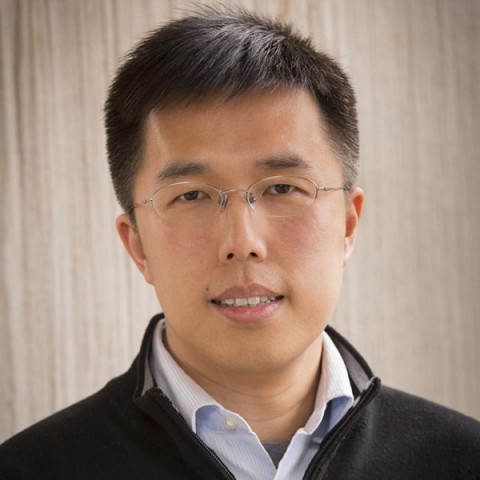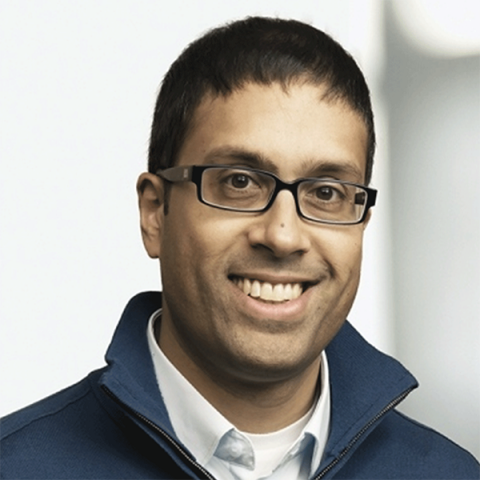Two professors from the Pritzker School of Molecular Engineering (PME) have received major awards from the American Physical Society (APS) this year for their contributions to computational physics and quantum physics.
Giulia Galli, Liew Family Professor of Molecular Engineering, received the 2022 Aneesur Rahman Prize for Computational Physics; and Liang Jiang, professor of molecular engineering, received the 2022 Rolf Landauer and Charles H. Bennett Award in Quantum Computing.

Galli, also a professor of chemistry at UChicago, senior scientist at Argonne National Laboratory, and director of the Midwest Integrated Center for Computational Materials (MICCoM), has been recognized for her contributions to the fields of computational condensed-matter, materials science, and nanoscience. In addition, she has made great strides in first principles simulations of materials and liquids, in particular materials for energy, properties of water, and excited state phenomena. Her research focuses on problems relevant to the development of sustainable energy sources and quantum technologies.
Galli received the Aneesur Rahman prize for “the development of theoretical methods to compute and engineer the electronic and structural properties of molecules and materials, broadening the applicability of first-principles computational approaches to multiple disciplines, including nanoscience, and for many predictions subsequently confirmed experimentally.”
The prize is given annually and recognizes outstanding achievement in computational physics research. It consists of a $10,000 award and a certificate citing Galli’s contributions. As part of the prize, Galli will deliver the Rahman Lecture at the upcoming APS annual meeting, which will be held in Chicago.

Jiang investigates quantum control and quantum error correction to protect quantum information from decoherence. Potential applications for his work include quantum sensing, quantum transduction, quantum communication, and quantum computation. Jiang has also investigated quantum information processing with superconducting circuits and quantum transduction with hybrid quantum devices.
Jiang received the Rolf Landauer and Charles H. Bennett Award for his “substantial contributions to the field of theoretical quantum information science, with emphasis on exploiting novel error correction strategies to enhance performance in a manner compatible with state-of-the-art experimental platforms, and for helping establish new foundations for fault-tolerant and practical quantum communication, computing, and sensing.”
The award recognizes recent outstanding contributions in quantum information science, especially using quantum effects to perform computational and information-management tasks that would be impossible or infeasible by purely classical means. The award is given annually and consists of a $5,000 prize and a certificate citing Jiang’s contributions. Jiang will also give a lecture at the upcoming APS meeting.
APS Fellowship
The APS also elected Jiang and Aashish Clerk, professor of molecular engineering, as 2021 APS fellows.

The APS fellowship program recognizes members who have made exceptional contributions to physics research, important applications of physics, leadership in or service to physics, or significant contributions to physics education.
Jiang was elected for his innovative theoretical contributions opening new directions in quantum communication, computation, and metrology.
Clerk was elected for his fundamental contributions to the theory of quantum optomechanical systems, quantum dissipation engineering, and other areas of quantum optics.
Clerk’s research focuses on understanding complex phenomena in quantum systems that are connected to dissipation. Such effects are not only interesting from a fundamental perspective, but can also enable quantum technologies to transcend the limitations of purely classical systems. His group’s work intersects the fields of condensed matter physics, quantum optics, and quantum information.
To view the complete list of the 2021 APS fellows and their citations, visit the APS fellow archive.
To view the complete list of the 2022 APS prize winners and their citations, visit the APS Prize and Awards listing.